
Surabaya: The Gateway to East Java's Rich Heritage
Welcome to Surabaya, Indonesia's second-largest city and the bustling capital of East Java. Known as the 'City of Heroes' due to its pivotal role in the Indonesian independence movement, Surabaya is a dynamic blend of modernity and tradition. As you wander through its streets, you will find a vibrant mix of contemporary skyscrapers, colonial-era buildings, and historic sites that narrate the tale of its resilient past. Surabaya offers a plethora of attractions that cater to all types of travelers. History buffs will be fascinated by the House of Sampoerna, a well-preserved Dutch colonial-style building that now serves as a museum. For a spiritual experience, visit the awe-inspiring Al Akbar Mosque, one of the largest in Southeast Asia, or the Cheng Hoo Mosque, which uniquely combines Chinese and Islamic architectural styles. The Surabaya Submarine Monument and Heroes Monument are must-sees for those interested in the city's military history. The city is also a food lover's paradise. Indulge in delicious local dishes like 'rawon,' a rich beef soup, or 'rujak cingur,' a traditional salad with a distinctive taste. Don't miss the vibrant night markets where you can sample a variety of street foods while mingling with the locals. For those who love shopping, Tunjungan Plaza, one of the largest shopping malls in Southeast Asia, offers a wide range of international and local brands. Nature enthusiasts will appreciate a visit to the Mangrove Information Center, a serene escape from the city's hustle and bustle. The nearby Mount Bromo and Madura Island offer excellent day trips for those looking to explore the natural beauty surrounding Surabaya. With its rich cultural heritage, delectable cuisine, and warm hospitality, Surabaya promises an unforgettable experience for every traveler.
Local tips in Surabaya
- Visit the House of Sampoerna early in the morning to avoid crowds.
- Try the local dish 'rawon' at a traditional warung for an authentic taste.
- Use the city's ride-hailing apps like Gojek or Grab for convenient transportation.
- Explore the night markets for unique souvenirs and local snacks.
- Plan a day trip to Mount Bromo for a spectacular sunrise experience.
- Wear modest clothing when visiting religious sites like the Al Akbar Mosque.
Neighbourhoods in Surabaya
Surabaya: The Gateway to East Java's Rich Heritage
Welcome to Surabaya, Indonesia's second-largest city and the bustling capital of East Java. Known as the 'City of Heroes' due to its pivotal role in the Indonesian independence movement, Surabaya is a dynamic blend of modernity and tradition. As you wander through its streets, you will find a vibrant mix of contemporary skyscrapers, colonial-era buildings, and historic sites that narrate the tale of its resilient past. Surabaya offers a plethora of attractions that cater to all types of travelers. History buffs will be fascinated by the House of Sampoerna, a well-preserved Dutch colonial-style building that now serves as a museum. For a spiritual experience, visit the awe-inspiring Al Akbar Mosque, one of the largest in Southeast Asia, or the Cheng Hoo Mosque, which uniquely combines Chinese and Islamic architectural styles. The Surabaya Submarine Monument and Heroes Monument are must-sees for those interested in the city's military history. The city is also a food lover's paradise. Indulge in delicious local dishes like 'rawon,' a rich beef soup, or 'rujak cingur,' a traditional salad with a distinctive taste. Don't miss the vibrant night markets where you can sample a variety of street foods while mingling with the locals. For those who love shopping, Tunjungan Plaza, one of the largest shopping malls in Southeast Asia, offers a wide range of international and local brands. Nature enthusiasts will appreciate a visit to the Mangrove Information Center, a serene escape from the city's hustle and bustle. The nearby Mount Bromo and Madura Island offer excellent day trips for those looking to explore the natural beauty surrounding Surabaya. With its rich cultural heritage, delectable cuisine, and warm hospitality, Surabaya promises an unforgettable experience for every traveler.
When is the best time to go to Surabaya?
Iconic landmarks you can’t miss
Surabaya Zoo
Immerse yourself in the vibrant world of wildlife at Surabaya Zoo, East Java's prime destination for animal lovers and nature enthusiasts.
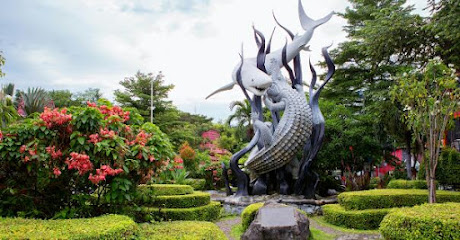
Monumen Tugu Pahlawan dan Museum Sepuluh Nopember Surabaya
Explore the Monumen Tugu Pahlawan and Museum Sepuluh Nopember, a historical landmark in Surabaya that honors Indonesia's fight for independence with rich cultural exhibits.
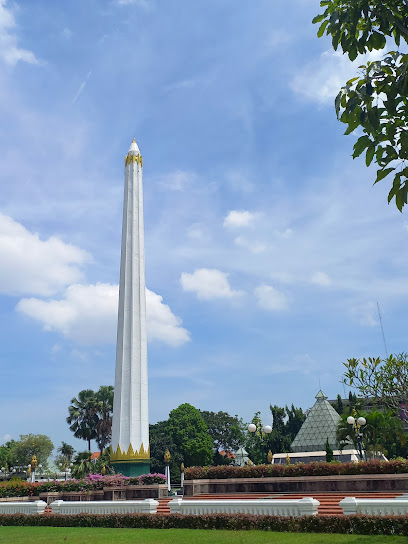
Surabaya North Quay
Experience the vibrant atmosphere and stunning views at Surabaya North Quay, a premier destination for tourists in East Java.
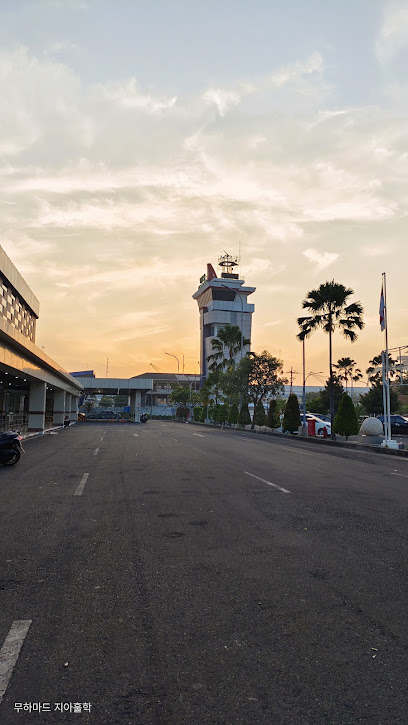
Surabaya Submarine Monument
Visit the Surabaya Submarine Monument to explore Indonesia's naval history within a retired submarine, an essential stop for every traveler in East Java.
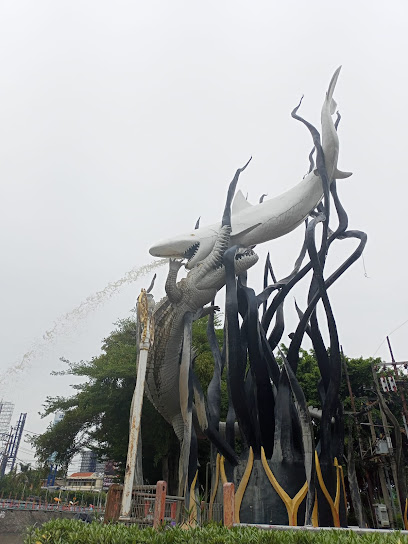
Siola Surabaya Museum
Explore Surabaya's vibrant history at the Siola Surabaya Museum, where culture and heritage come alive through captivating exhibits and rich artifacts.
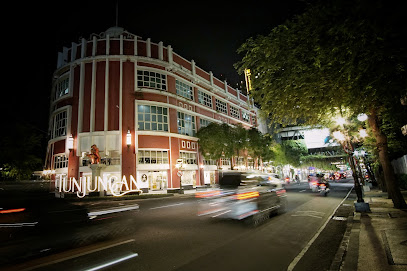
Suro and Boyo Statue
Explore the iconic Suro and Boyo Statue in Surabaya, a majestic symbol of local folklore and artistry, perfect for sightseeing and cultural immersion.
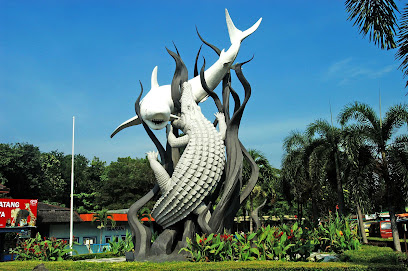
Surabaya Youth Center
Explore Surabaya Youth Center, a vibrant hub for culture and community engagement in the heart of East Java.
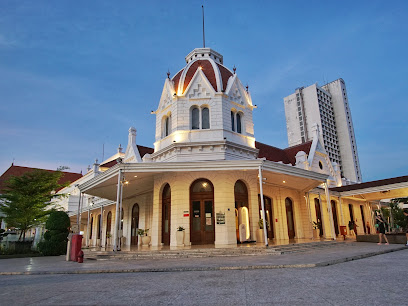
Tugu Pahlawan
Explore the historical essence of Surabaya at Tugu Pahlawan, a majestic monument dedicated to Indonesia's heroes of independence.
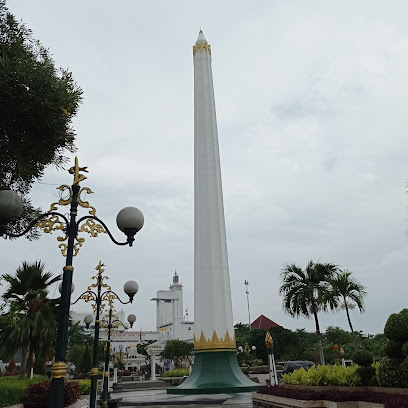
Monumen Bambu Runcing
Explore Monumen Bambu Runcing, Surabaya's prominent historical landmark, a symbol of resilience and the perfect blend of culture and history.
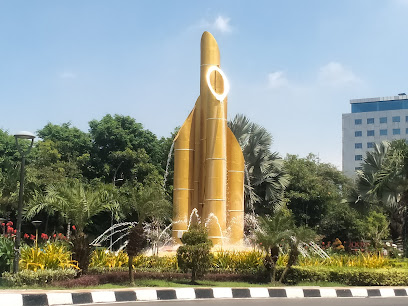
Kenjeran Park
Experience the natural beauty and recreational charm of Kenjeran Park in Surabaya, a perfect escape for nature lovers and families alike.
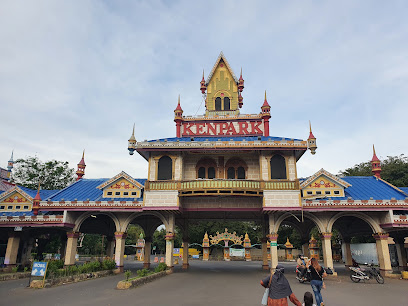
Monumen Jalesveva Jayamahe
Discover the rich maritime heritage of Indonesia at Monumen Jalesveva Jayamahe, a stunning tribute in Surabaya's scenic waterfront.
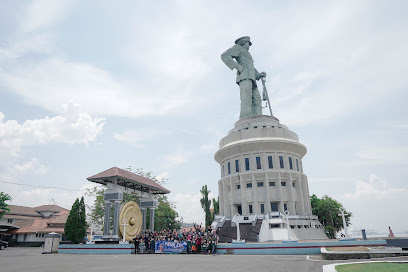
De Javasche Bank
Discover the rich heritage of Indonesia's banking history at De Javasche Bank, an architectural gem in Surabaya's vibrant cultural landscape.
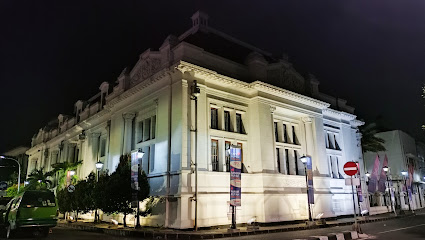
Arca Joko Dolog
Explore Arca Joko Dolog in Surabaya, a historical landmark that showcases Indonesia's rich cultural heritage and artistic traditions.
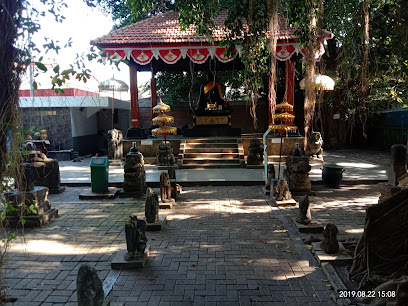
Suroboyo Bridge
Discover the breathtaking views and cultural richness of Suroboyo Bridge in Surabaya, a must-see tourist attraction blending modernity with tradition.
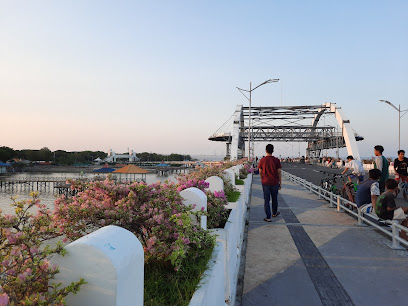
Karapan Sapi Statue
Discover the cultural essence of Surabaya at the Karapan Sapi Statue, a tribute to the exhilarating bull racing tradition of East Java.
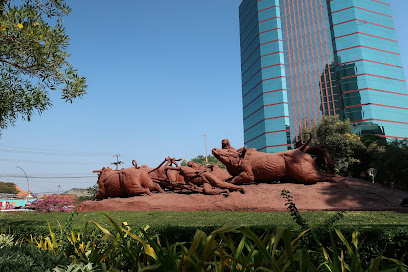
Unmissable attractions to see
Bungkul Park
Explore Bungkul Park, a beautiful urban oasis in Surabaya, offering lush gardens, local delicacies, and a vibrant cultural atmosphere for every traveler.
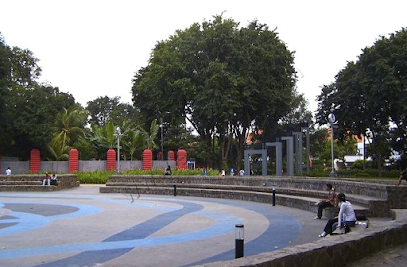
Surabaya Zoo
Experience a fantastic array of wildlife at Surabaya Zoo, a top tourist destination in East Java for family fun and education.
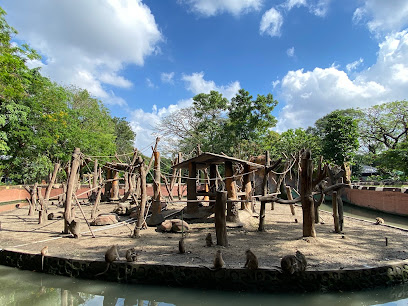
Monumen Tugu Pahlawan dan Museum Sepuluh Nopember Surabaya
Explore the Monumen Tugu Pahlawan in Surabaya, an iconic landmark celebrating Indonesia's fight for independence, rich in history and beauty.
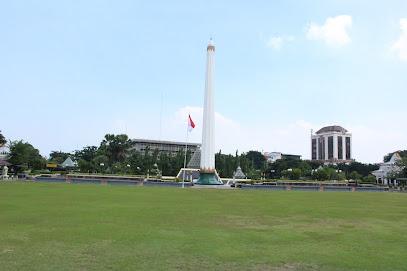
Surabaya North Quay
Explore Surabaya North Quay, a vibrant waterfront destination in East Java, offering stunning views, local cuisine, and cultural experiences for every traveler.
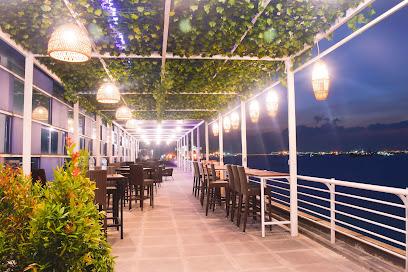
Suroboyo Park
Explore Suroboyo Park: A breathtaking urban oasis in Surabaya offering fun attractions, lush landscapes, and delightful local cuisine for the whole family.
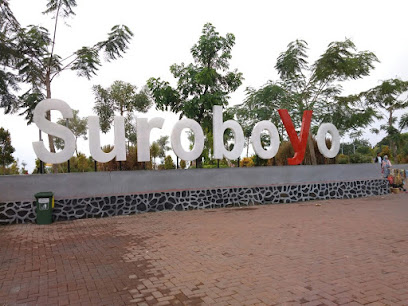
Taman Prestasi Surabaya
Explore Taman Prestasi Surabaya, a serene city park filled with lush landscapes, playgrounds, and tranquil waters, making it perfect for relaxation and recreation.
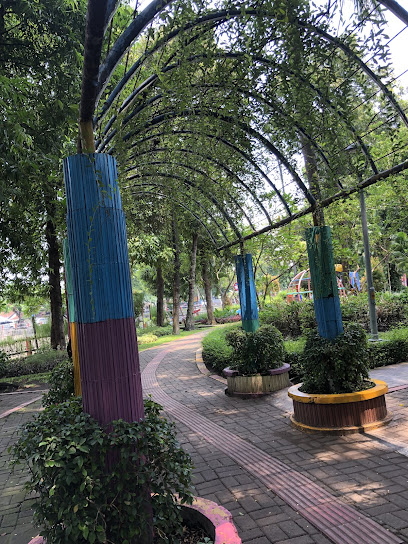
Apsari Park
Discover Apsari Park in Surabaya, a beautiful green oasis perfect for relaxation, picnics, and savoring local cuisine amidst vibrant cultural experiences.
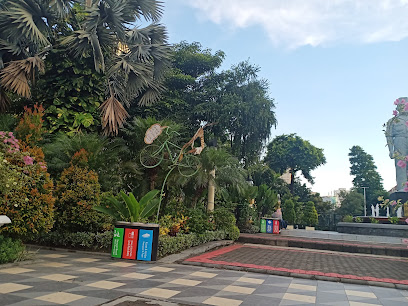
Siola Surabaya Museum
Experience the essence of Surabaya's history and culture at Siola Surabaya Museum, a captivating destination for all travelers.
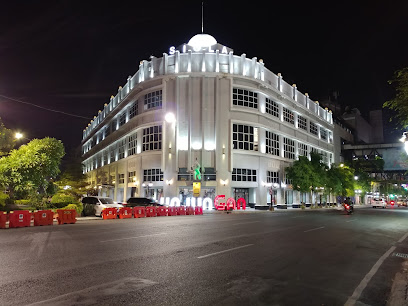
Muhammad Cheng Hoo Mosque
Discover the breathtaking Muhammad Cheng Hoo Mosque in Surabaya, where cultural heritage meets spiritual tranquility amidst stunning architecture.
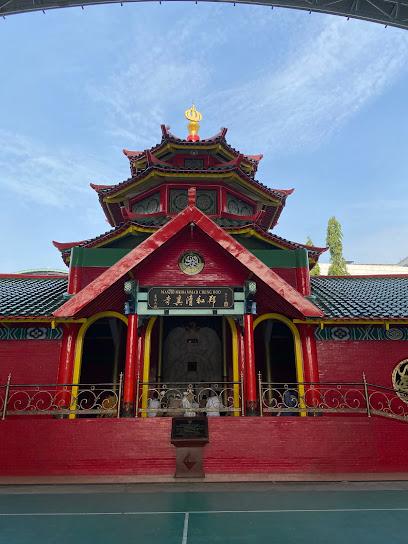
Suro and Boyo Statue
Discover the iconic Suro and Boyo Statue in Surabaya, a cultural landmark showcasing the rich folklore of East Java amidst a vibrant atmosphere.
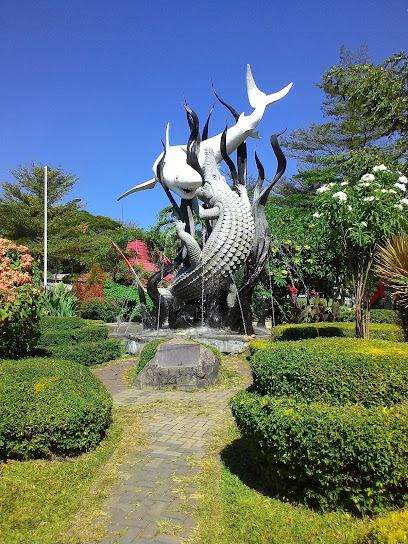
Surabaya Youth Center
Experience the heart of youth culture at Surabaya Youth Center, a vibrant community hub offering creativity, events, and local engagement in East Java.
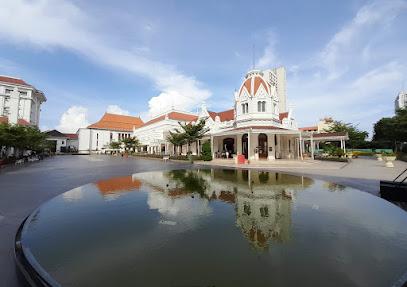
Taman Pelangi
Experience the magic of Taman Pelangi in Surabaya, where vibrant lights and lush landscapes create a colorful paradise for all visitors.
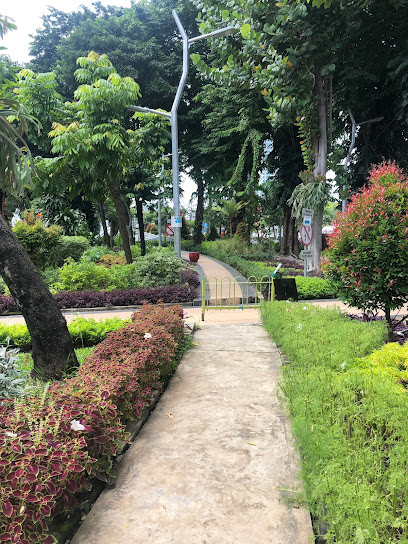
Monumen Bambu Runcing
Discover the majestic Monumen Bambu Runcing in Surabaya, a historical monument symbolizing courage and the spirit of Indonesia's fight for independence.
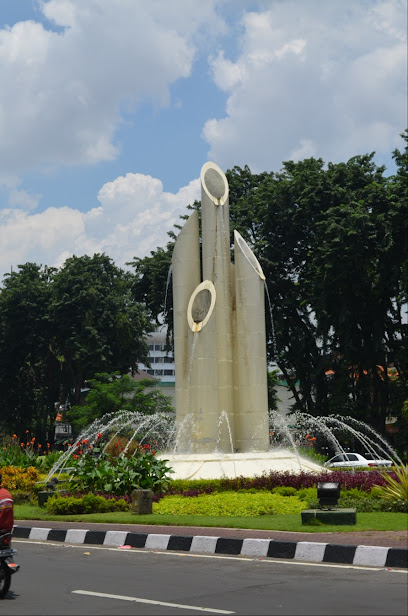
Kenjeran Park
Explore the lush landscapes and serene atmosphere of Kenjeran Park, a beautiful ecological haven in Surabaya, East Java.
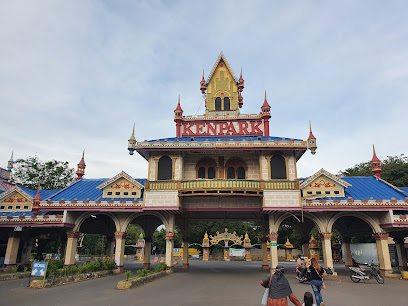
Hutan Bambu Keputih Surabaya
Explore the serene beauty of Hutan Bambu Keputih in Surabaya, a tranquil bamboo forest park perfect for relaxation and photography.
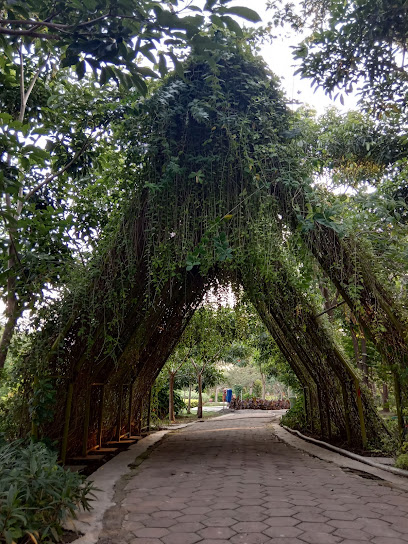
Essential places to dine
Rawon Setan - Embong Malang
Discover the rich flavors of authentic Indonesian cuisine at Rawon Setan - Embong Malang in Surabaya, where every bite tells a story.
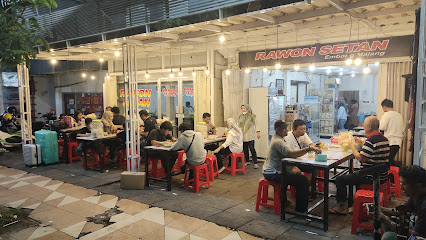
Ayam Bakar Primarasa
Savor authentic Javanese grilled chicken at Ayam Bakar Primarasa - a culinary delight in Surabaya offering rich flavors and warm hospitality.
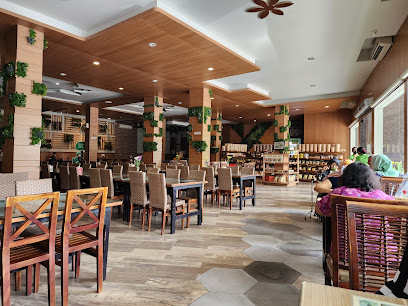
Domicile Kitchen Lounge
Experience exceptional Western and American cuisine at Domicile Kitchen Lounge in Surabaya – where flavor meets elegance.
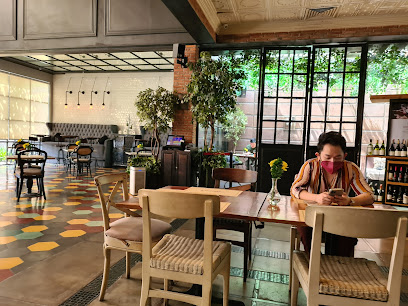
Bon Ami Restaurant
Discover the heartwarming flavors of Indonesia at Bon Ami Restaurant in Surabaya – where family-friendly dining meets exquisite cuisine.
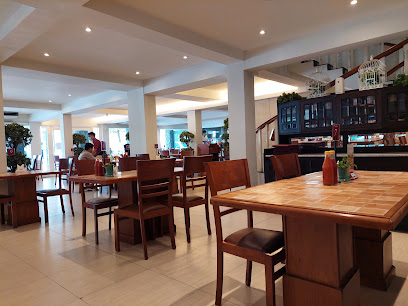
Ayam Bakar Primarasa Manyar Kertoarjo
Savor authentic Indonesian cuisine at Ayam Bakar Primarasa Manyar Kertoarjo—famous for its delicious grilled chicken and seafood.
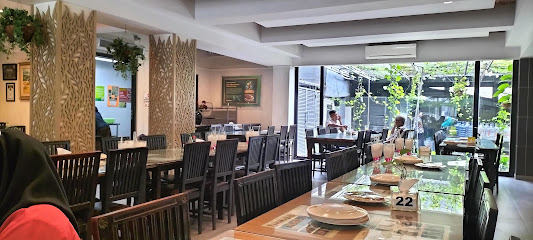
Kahyangan Resto
Discover the essence of Indonesian cuisine at Kahyangan Resto in Surabaya - where every dish tells a story.
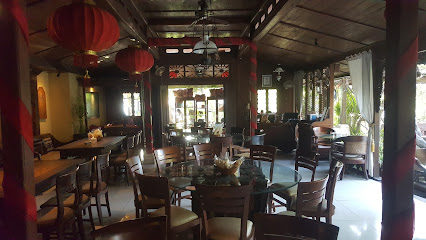
Kayanna Restaurant
Experience the rich flavors of Indonesia at Kayanna Restaurant in Surabaya, where culinary traditions meet modern dining.
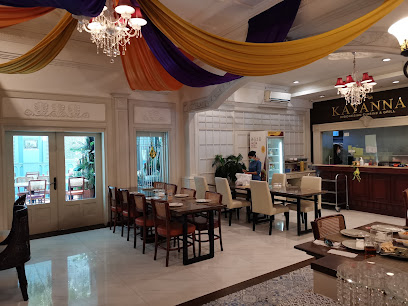
Arumanis Restaurant
Discover the vibrant flavors of Indonesia at Arumanis Restaurant - an exquisite buffet experience in Surabaya's Bumi City Resort.
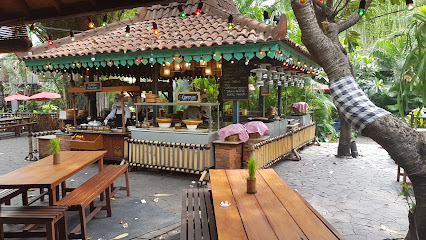
ALHAMRA Restaurant
Experience authentic Middle Eastern flavors at ALHAMRA Restaurant in Surabaya - a true culinary gem that delights every palate.
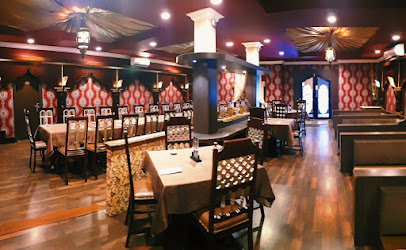
Restoran Bebek Tepi Sawah Surabaya
Savor authentic Balinese flavors in Surabaya's serene oasis at Restoran Bebek Tepi Sawah – where every dish tells a story.
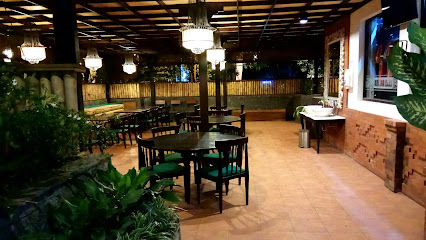
My Story Steak & Eatery
Experience exquisite steaks and Western cuisine at My Story Steak & Eatery in Surabaya – where every meal tells a delicious story.
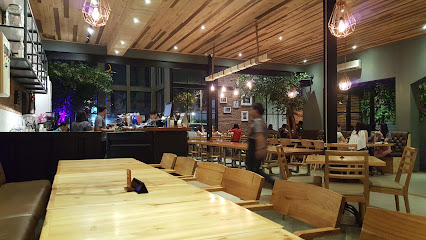
Old Wood Bistro
Experience the vibrant flavors of Surabaya at Old Wood Bistro – where culinary excellence meets lively entertainment in a stunning setting.
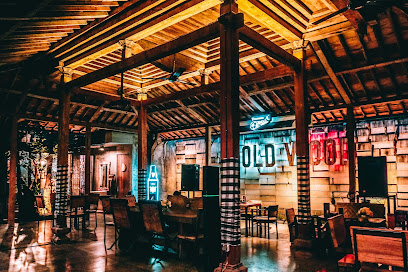
White House Surabaya | Resto Garden Lounge
Discover the perfect blend of tradition and modernity at White House Surabaya's serene garden lounge dining experience.
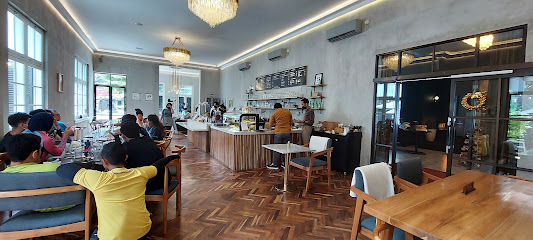
Pavilion Restaurant at JW Marriott Surabaya
Experience culinary excellence at Pavilion Restaurant in JW Marriott Surabaya with an exquisite buffet featuring local and international delights.
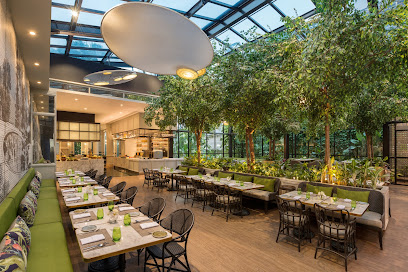
The Consulate
Experience exquisite fine dining at The Consulate in Surabaya - where Japanese precision meets Western flair.
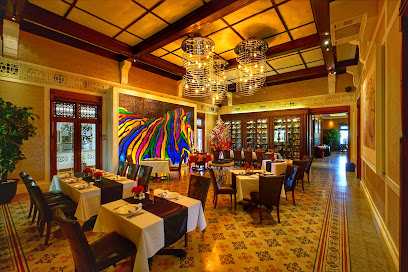
Markets, malls and hidden boutiques
Tunjungan Plaza
Explore Tunjungan Plaza, Surabaya's iconic shopping mall with a rich selection of shops, dining, and entertainment for every visitor.
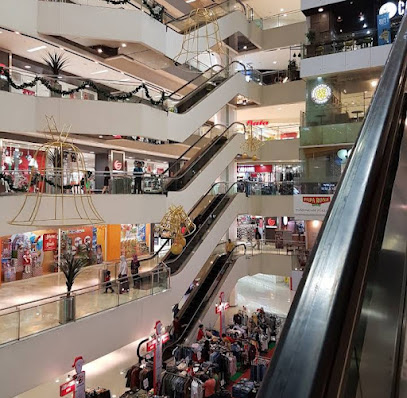
WTC Surabaya
Discover WTC Surabaya, where shopping meets entertainment in a dynamic mall experience in East Java. Explore, shop, and indulge in local delights.
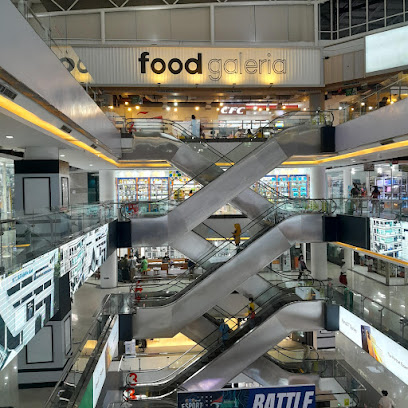
Grand City Mall Surabaya
Explore Grand City Mall Surabaya: Your ultimate shopping, dining, and entertainment destination in East Java.
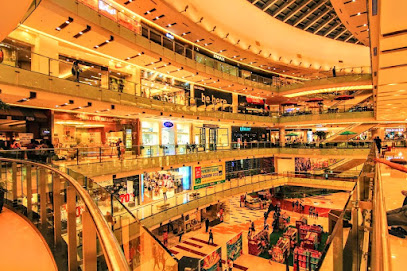
Galaxy Mall Surabaya
Discover the ultimate shopping experience at Galaxy Mall Surabaya, featuring a wide range of stores, dining options, and entertainment for the whole family.
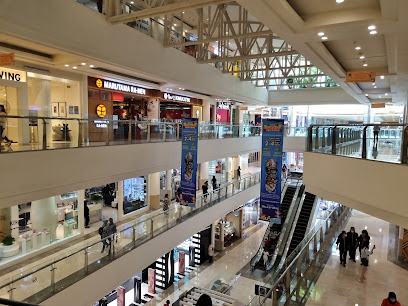
Ciputra World Surabaya
Explore Ciputra World Surabaya, a vibrant shopping mall offering a unique blend of fashion, dining, and entertainment in the heart of East Java.
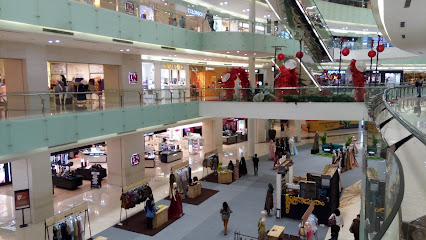
Pasar Atom
Explore Pasar Atom, Surabaya's vibrant shopping mall, offering a mix of local crafts, clothing, and delicious food in a lively atmosphere.
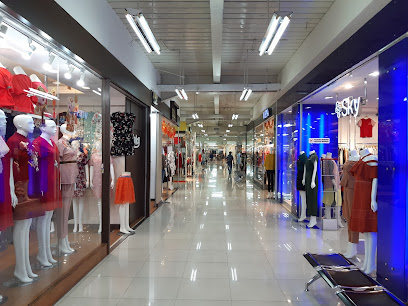
City of Tomorrow Mall
Discover a shopping paradise at City of Tomorrow Mall in Surabaya, where modern retail meets local culture for an unforgettable experience.
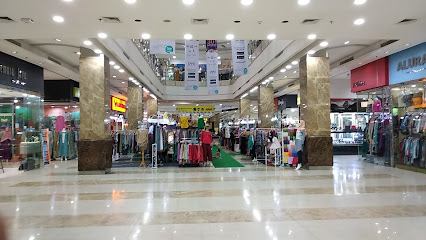
ITC Mega Grosir Surabaya
Discover the vibrant shopping experience at ITC Mega Grosir Surabaya, where unique finds and local culture await every visitor.
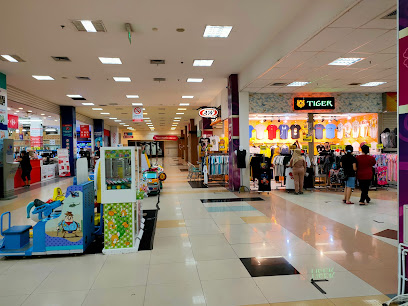
Royal Plaza Surabaya
Discover a vibrant shopping experience at Royal Plaza Surabaya, where fashion, dining, and entertainment come together in East Java.
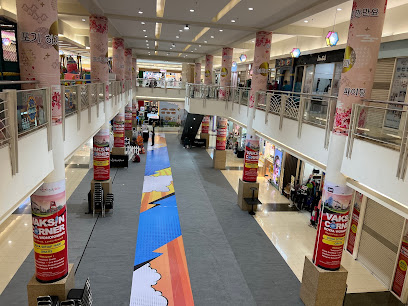
Plaza Surabaya
Explore Plaza Surabaya, a bustling shopping mall in East Java, blending modern retail with local charm and vibrant dining options.
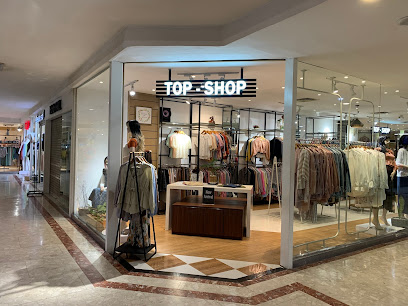
Havaianas Pakuwon Mall
Discover Havaianas Pakuwon Mall: A vibrant shopping haven in Surabaya, combining retail therapy with delightful dining and entertainment experiences.
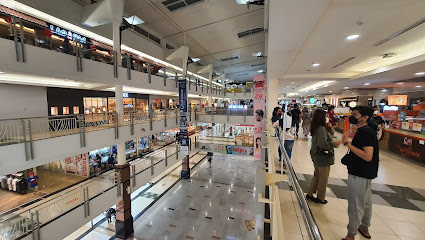
Central Point Mall
Discover a shopper's paradise at Central Point Mall, Surabaya's vibrant hub featuring diverse stores, delightful dining, and community events.
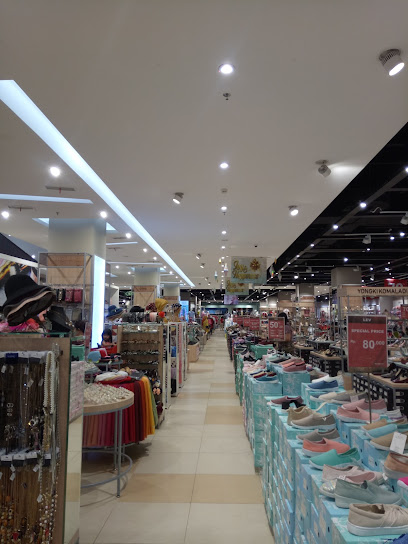
The Grand Palace
Discover an unforgettable shopping experience at The Grand Palace in Surabaya, where fashion meets local culture in a vibrant atmosphere.
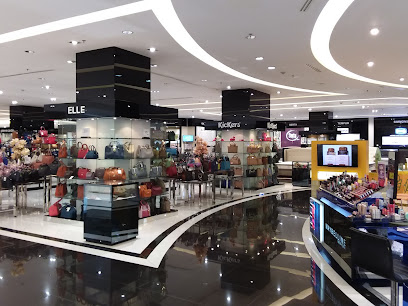
THE JAVA T-shirt and Merchandise Store
Explore unique fashion and souvenirs at The Java T-shirt and Merchandise Store, a vibrant shopping hub in Surabaya.
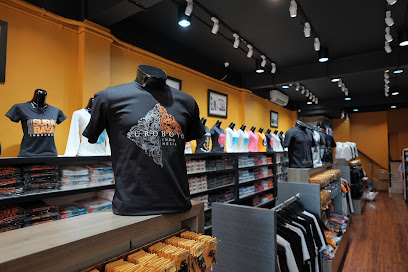
Inside Stuff
Discover unbeatable deals and local flavors at Inside Stuff, Surabaya's premier outlet mall for an unforgettable shopping experience.

Essential bars & hidden hideouts
Our Bar
Discover the perfect blend of delicious grilled cuisine and live music at Our Bar in Surabaya.
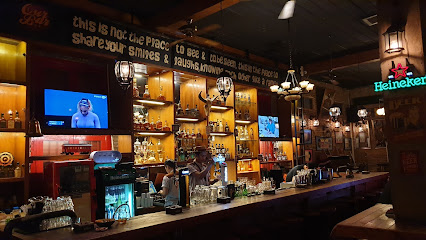
Old Wood Bistro
Discover the vibrant atmosphere of Old Wood Bistro in Surabaya, where live music meets delicious dining in a charming beer garden.
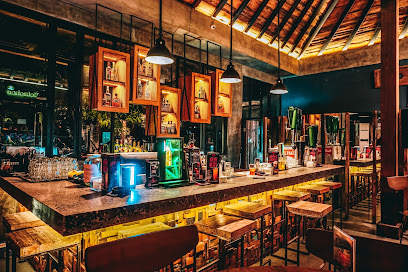
NEON by Brassery
Discover Surabaya's vibrant nightlife at NEON by Brassery, a trendy bar and nightclub offering unique cocktails and electrifying events.
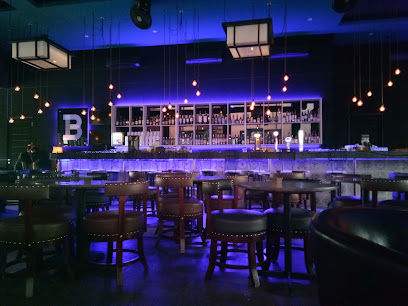
COLORS PUB & RESTAURANT
Discover the vibrant ambiance, delicious food, and live music at COLORS PUB & RESTAURANT, a must-visit Irish pub in Surabaya.
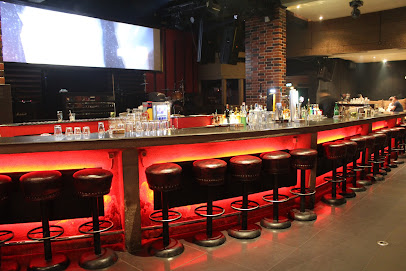
HOPS Kitchen & Bar
Experience the vibrant flavors of Surabaya at HOPS Kitchen & Bar, where craft beer meets culinary excellence in a lively atmosphere.
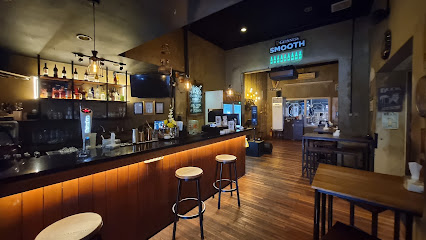
Almaluna Bar & Resto
Discover the lively fusion of music, dining, and wine at Almaluna Bar & Resto in Surabaya's vibrant Pakuwon Mall.
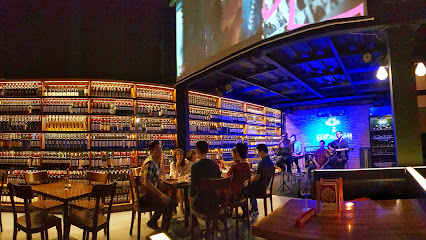
Lucy In The Sky Surabaya
Discover the electric atmosphere of Lucy In The Sky Surabaya, where unforgettable nightlife, exquisite cocktails, and vibrant music await you in East Java.
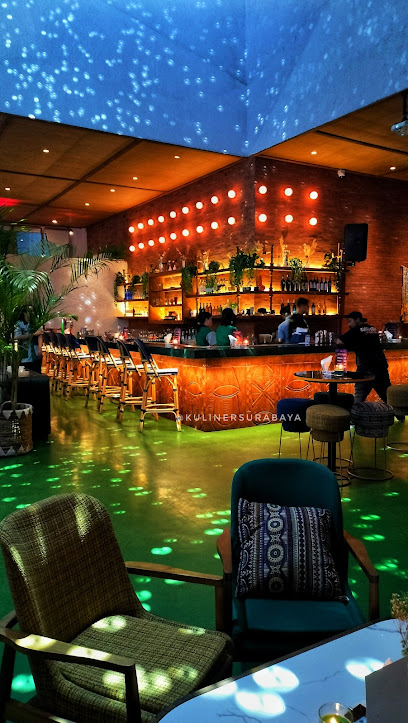
Top Ten Club Coyote Bar
Top Ten Club Coyote Bar in Surabaya offers an electrifying nightlife experience with vibrant cocktails, DJ beats, and a stylish atmosphere perfect for unforgettable nights.
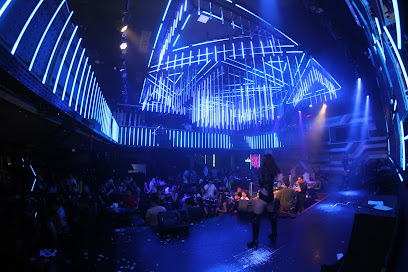
Loveshack Skybar Tapas & Grill
Discover Loveshack Skybar Tapas & Grill in Surabaya, where exquisite tapas, live music, and breathtaking views create an unforgettable dining experience.
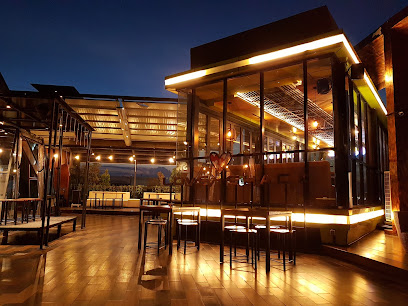
Hensman Grill & Bar
Savor the best grilled dishes and vibrant nightlife at Hensman Grill & Bar in Surabaya, the perfect spot for food lovers and social gatherings.
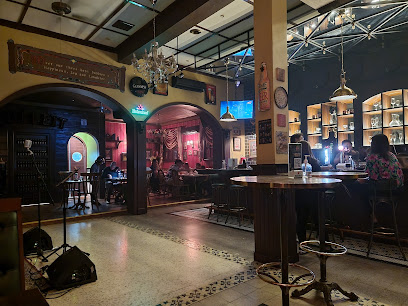
Geldbang Bar & Lounge
Discover the energetic vibe of Geldbang Bar & Lounge, Surabaya's premier destination for live music and nightlife excitement.
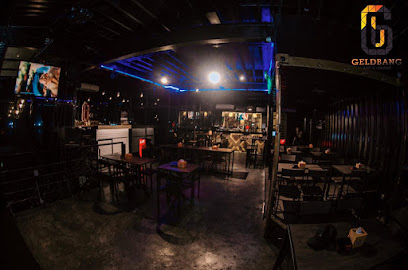
The Avenue Lounge Bar
Discover Surabaya's vibrant nightlife at The Avenue Lounge Bar, where stylish ambiance meets exceptional drinks for an unforgettable experience.
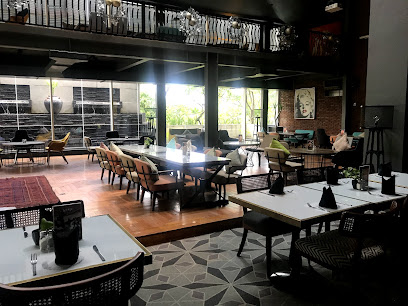
Skycave Bar & Lounge
Discover the charm of Surabaya at Skycave Bar & Lounge, where live music meets a stunning atmosphere and refreshing drinks.
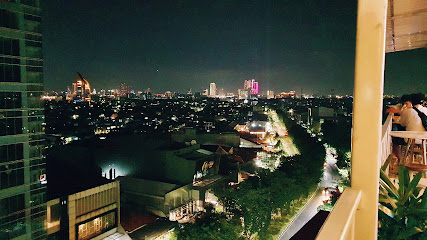
LAPPA Rooftop Bar and Lounge
Discover the elegance of LAPPA Rooftop Bar and Lounge in Surabaya, where stunning views meet exquisite cuisine and cocktails.
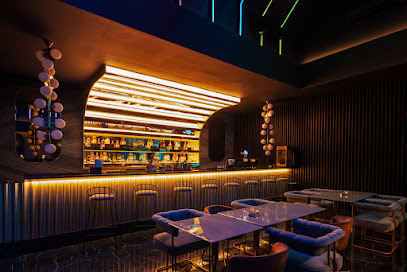
TRIBES Bar & Lounge
Discover TRIBES Bar & Lounge in Surabaya: Where Live Music Meets Exquisite Cocktails for an Unforgettable Night Out.
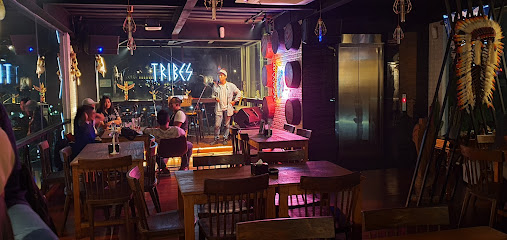
Local Phrases
-
- HelloHalo
[haˈlo] - GoodbyeSampai jumpa
[samˈpai ˈdʒumpa] - YesIya
[ˈi.ja] - NoTidak
[ˈti.dak] - Please/You're welcomeTolong
[ˈto.loŋ] - Thank youTerima kasih
[tɛˈrima kaˈsih] - Excuse me/SorryMaaf
[maˈaf] - How are you?Apa kabar?
[ˈa.pa ˈka.bar] - Fine. And you?Baik. Bagaimana denganmu?
[baˈik baˈɡai.mana dɛnˈɡan.mu] - Do you speak English?Apakah kamu bisa berbahasa Inggris?
[aˈpa.ka ˈkamʊ ˈbisa bərˈba.ha.sa ˈiŋ.ɡris] - I don't understandSaya tidak mengerti
[saˈja tiˈdak məŋˈɡɛr.ti]
- HelloHalo
-
- I'd like to see the menu, pleaseSaya ingin melihat menu, tolong
[saˈja ˈi.ŋin məˈli.hat ˈmɛ.nu ˈto.loŋ] - I don't eat meatSaya tidak makan daging
[saˈja tiˈdak maˈkan ˈda.jiŋ] - Cheers!Selamat!
[sɛˈla.mat] - I would like to pay, pleaseSaya ingin membayar, tolong
[saˈja ˈi.ŋin məmˈba.jar ˈto.loŋ]
- I'd like to see the menu, pleaseSaya ingin melihat menu, tolong
-
- Help!Tolong!
[ˈto.loŋ] - Go away!Pergi!
[ˈpɛr.ɡi] - Call the Police!Panggil polisi!
[paŋˈɡil poˈli.si] - Call a doctor!Panggil dokter!
[paŋˈɡil ˈdo.ktər] - I'm lostSaya tersesat
[saˈja tərˈsɛ.sat] - I'm illSaya sakit
[saˈja ˈsa.kit]
- Help!Tolong!
-
- I'd like to buy...Saya ingin membeli...
[saˈja ˈi.ŋin məmˈbɛ.li...] - I'm just lookingSaya hanya melihat-lihat
[saˈja ˈhɑn.ja məˈli.hat-liˈhat] - How much is it?Berapa harganya?
[bɛˈra.pa harˈɡan.ja] - That's too expensiveItu terlalu mahal
[ˈi.tu tərˈla.lu maˈhal] - Can you lower the price?Bisa turunkan harganya?
[ˈbi.sa tuˈruŋ.kan harˈɡan.ja]
- I'd like to buy...Saya ingin membeli...
-
- What time is it?Sekarang jam berapa?
[səˈka.raŋ dʒam bɛˈra.pa] - It's one o'clockSekarang pukul satu
[səˈka.raŋ puˈkul ˈsa.tu] - Half past (10)Setengah (sepuluh)
[səˈtɛŋ.ah (səˈpu.lu)] - MorningPagi
[ˈpa.ɡi] - AfternoonSiang
[ˈsi.aŋ] - EveningMalam
[ˈma.lam] - YesterdayKemarin
[kəˈma.rin] - TodayHari ini
[ˈha.ri ˈi.ni] - TomorrowBesok
[ˈbɛ.sok] - 1Satu
[ˈsa.tu] - 2Dua
[ˈdu.a] - 3Tiga
[ˈti.ɡa] - 4Empat
[ˈɛm.pat] - 5Lima
[ˈli.ma] - 6Enam
[ˈə.nam] - 7Tujuh
[ˈtu.dʒuʰ] - 8Delapan
[dəˈla.pan] - 9Sembilan
[səmˈbi.lan] - 10Sepuluh
[səˈpu.lu]
- What time is it?Sekarang jam berapa?
-
- Where's a/the...?Dimana ada/ada...
[di.ˈma.na ˈa.da/ ˈa.da] - What's the address?Alamatnya dimana?
[aˈlamat.nja di.ˈma.na] - Can you show me (on the map)?Bisa tunjukkan saya (di peta)?
[ˈbi.sa tun.ˈdʒuk.kan saˈja (di ˈpe.ta)] - When's the next (bus)?Kapan bus berikutnya?
[ˈka.pan bus bə.ˈri.kut.nja] - A ticket (to ....)Tiket (ke ....)
[ˈti.kət (kɛ ....)]
- Where's a/the...?Dimana ada/ada...
History of Surabaya
-
Surabaya, often referred to as the 'City of Heroes', was founded in the late 13th century. According to local folklore, the name Surabaya is derived from the Javanese words 'sura' (shark) and 'baya' (crocodile), symbolizing a legendary battle between a shark and a crocodile. The city was officially established in 1293 following a victory by Raden Wijaya, the founder of the Majapahit Empire, over the Mongol Empire.
-
In the early 17th century, Surabaya fell under Dutch colonial rule. The Dutch East India Company (VOC) established a trading post in the city in 1614, which eventually became one of the most important ports in the Indonesian archipelago. The city's strategic location and natural harbor made it a key hub for the spice trade and other commercial activities. During this period, Surabaya grew into a bustling urban center with a diverse population, including Chinese, Arab, and Indian communities.
-
During World War II, Surabaya was occupied by Japanese forces from 1942 to 1945. The occupation had a profound impact on the city and its residents, leading to significant economic hardship and social upheaval. The Japanese used Surabaya's port and infrastructure for their military operations, and many local residents were conscripted into forced labor. The period of Japanese rule came to an end with Japan's surrender in August 1945.
-
One of the most pivotal events in Surabaya's history is the Battle of Surabaya, which took place in November 1945. This battle was a major conflict between Indonesian nationalists and British and Dutch forces, who sought to reassert colonial control after the end of World War II. The fierce fighting, which lasted for several weeks, resulted in significant casualties and widespread destruction. The bravery and determination of Surabaya's residents during the battle earned the city its nickname, 'City of Heroes'.
-
After Indonesia gained independence in 1949, Surabaya underwent rapid modernization and development. The city emerged as a major industrial and commercial center, attracting investment and infrastructure projects. Key industries in Surabaya include shipbuilding, electronics, and food processing. The city's port, Tanjung Perak, remains one of the busiest in the region, handling a significant portion of Indonesia's international trade.
-
Surabaya is a vibrant cultural hub, reflecting its rich history and diverse population. The city is known for its historic landmarks, such as the Heroes Monument (Tugu Pahlawan) and the House of Sampoerna, a museum dedicated to the history of clove cigarettes. Traditional Javanese culture is celebrated in Surabaya through various festivals, culinary traditions, and performing arts. In recent years, Surabaya has also become a center for education and innovation, with numerous universities and research institutions.
Surabaya Essentials
-
Surabaya is served by Juanda International Airport (SUB), which is located about 20 kilometers south of the city center. The airport handles both domestic and international flights. From the airport, you can reach the city by taxi, ride-hailing services, or airport shuttle buses. Alternatively, Surabaya is well-connected by train to other major cities in Java, such as Jakarta, Bandung, and Yogyakarta. Long-distance buses also operate to and from Surabaya, with several bus terminals located around the city.
-
Surabaya has a variety of transportation options. Taxis and ride-hailing services like Grab and Gojek are widely available and convenient. Public buses, including the Suroboyo Bus, offer an affordable way to get around the city. Bemo (minivans) and angkot (shared minivans) are also popular, though they can be crowded. For short distances, becak (pedicabs) provide a unique local experience. Car rentals are available but driving can be challenging due to traffic. The city is also developing a mass rapid transit system, which will further improve public transportation options.
-
The official currency in Surabaya is the Indonesian Rupiah (IDR). Credit and debit cards are accepted in most hotels, restaurants, and larger shops. However, cash is preferred in smaller establishments and local markets. ATMs are widely available throughout the city, and money changers offer competitive rates. It’s advisable to carry some cash for convenience, especially in more remote areas.
-
Surabaya is generally safe for tourists, but it is important to stay vigilant. Petty crimes like pickpocketing and bag-snatching can occur, especially in crowded areas like markets and public transport. Areas such as Dolly, once known for its red-light district, might still be best avoided. Stick to well-lit and busy areas at night. Always use reputable taxi services and avoid traveling alone late at night. Keep your belongings secure and be cautious when using ATMs.
-
In case of emergency, dial 112 for immediate assistance. Surabaya has several hospitals and medical facilities, including Dr. Soetomo Hospital, which offers comprehensive medical services. Pharmacies are plentiful and can provide over-the-counter medications. It is advisable to have travel insurance that covers medical emergencies. For lost or stolen items, contact the local police station to file a report.
-
Fashion: Do dress modestly, especially when visiting religious sites. Avoid wearing revealing clothing. Religion: Do respect local customs and traditions. Always remove your shoes when entering mosques and temples. Public Transport: Do be polite and give up your seat to elderly passengers. Don’t eat or drink on public transport. Greetings: Do greet people with a smile and a slight bow. A handshake is common in business settings. Eating & Drinking: Do try local delicacies and accept food offerings graciously. Don’t refuse hospitality, as it is considered impolite.
-
To experience Surabaya like a local, visit the traditional markets such as Pasar Turi or Pasar Pabean for fresh produce and local goods. Take a stroll along the historic Jalan Tunjungan for a glimpse of colonial-era architecture. Enjoy local street food like sate, gado-gado, and rujak cingur. Engage with locals, who are generally friendly and willing to share insights about their city. Don’t miss the House of Sampoerna, a museum and cigarette factory that offers a unique look into Surabaya’s history.
Trending Landmark in Surabaya
-
Surabaya Zoo
-
Monumen Tugu Pahlawan dan Museum Sepuluh Nopember Surabaya
-
Surabaya North Quay
-
Surabaya Submarine Monument
-
Siola Surabaya Museum
-
Suro and Boyo Statue
-
Surabaya Youth Center
-
Tugu Pahlawan
-
Monumen Bambu Runcing
-
Kenjeran Park
-
Monumen Jalesveva Jayamahe
-
De Javasche Bank
-
Arca Joko Dolog
-
Suroboyo Bridge
-
Karapan Sapi Statue
Nearby Cities to Surabaya
-
Things To Do in Semarang
-
Things To Do in Yogyakarta
-
Things To Do in Bali
-
Things To Do in Bandung
-
Things To Do in Jakarta
-
Things To Do in Makassar
-
Things To Do in Balikpapan
-
Things To Do in Settlement
-
Things To Do in Poon Saan
-
Things To Do in Flying Fish Cove
-
Things To Do in Drumsite
-
Things To Do in Greta Beach
-
Things To Do in Kuching
-
Things To Do in Miri
-
Things To Do in Kuala Belait

















